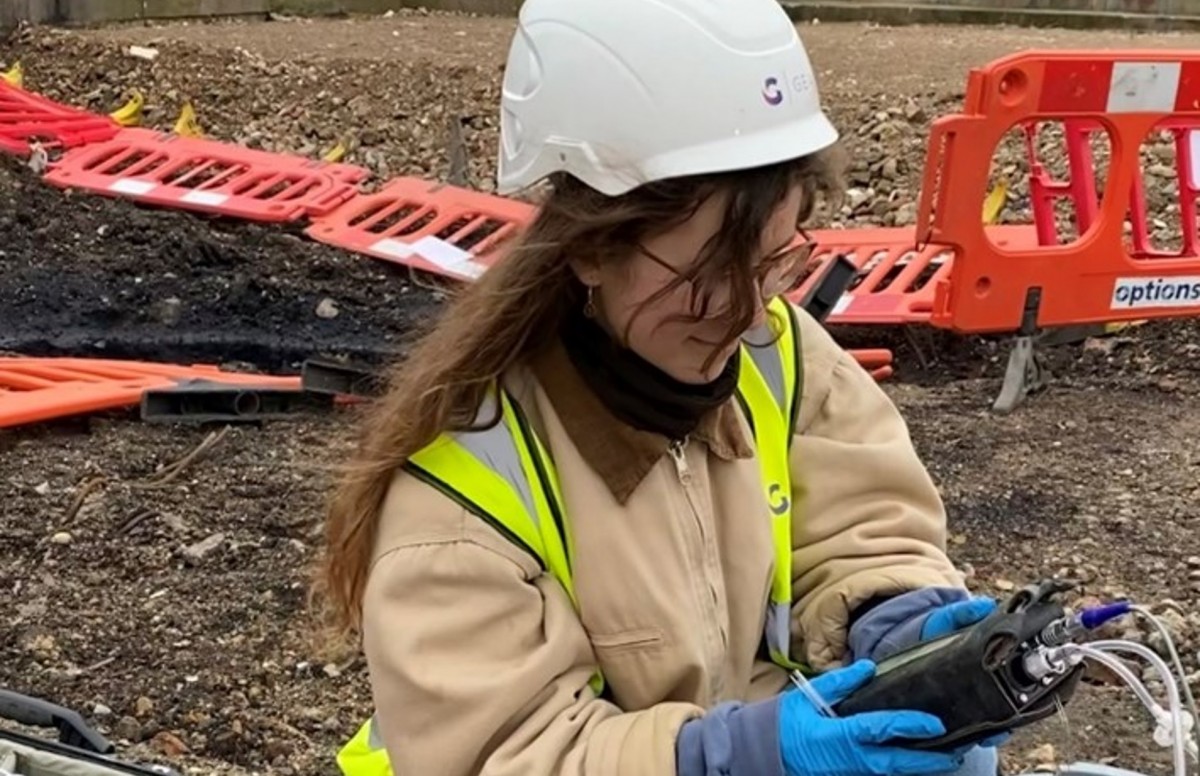All About Geotheta
All About Geotheta
Blog Article
The Ultimate Guide To Geotheta
Table of ContentsSome Known Questions About Geotheta.The Single Strategy To Use For GeothetaFascination About GeothetaThe smart Trick of Geotheta That Nobody is Talking AboutExcitement About Geotheta

They perform site examinations, accumulate samples, carry out laboratory tests, and assess data to review the viability of the ground for building projects - Geotechnical Engineers. Based on their findings, geotechnical engineers provide recommendations for foundation design, slope stability, retaining structures, and mitigation of geotechnical threats. They team up with other specialists, such as engineers, architectural designers, and construction groups, to guarantee that geotechnical considerations are integrated into the total project design and application
By assessing the actions and residential or commercial properties of soil and rock, they can recognize potential geotechnical dangers such as landslides, soil negotiation, or slope instability. Their expertise aids prevent failings or accidents that might endanger lives and building. Right here are some in-depth obligations and obligations of a geotechnical engineer: Website Investigation: Geotechnical designers conduct site investigations to collect data on subsurface problems.
They analyze the data to understand the residential properties and actions of the soil and rock, including their strength, leaks in the structure, compaction features, and groundwater problems. Geotechnical Evaluation and Layout: Geotechnical engineers analyze the information accumulated during website investigations to assess the stability and suitability of the website for building and construction tasks. They perform geotechnical estimations and modeling to review aspects such as bearing ability, negotiation, incline security, lateral planet pressures, and groundwater flow.
The Geotheta Diaries
Structure Style: Geotechnical designers play a crucial role in creating structures that can safely support the desired structure. They analyze the soil conditions and lots requirements to establish the appropriate structure kind, such as superficial foundations (e.g., grounds), deep structures (e.g (https://www.abnewswire.com/companyname/geotheta.com_139529.html#detail-tab)., stacks), or specialized techniques like dirt renovation. They take into consideration factors such as settlement restrictions, birthing capability, and soil-structure communication to develop optimal foundation designs
They examine building and construction plans, screen site tasks, and carry out field assessments to validate that the style recommendations are adhered to. If unpredicted geotechnical concerns develop, they evaluate the situation and give referrals for remediation or modifications to the design. Risk Assessment and Reduction: Geotechnical engineers examine geotechnical risks and dangers connected with the job site, such as landslides, liquefaction, or dirt disintegration.

Partnership and Interaction: Geotechnical designers work very closely with other specialists entailed in a job, such as engineers, structural engineers, and construction teams. Reliable interaction and partnership are necessary to integrate geotechnical factors to consider right into the general task style and building procedure. Geotechnical designers provide technological know-how, response queries, and make certain that geotechnical needs are fulfilled.
The smart Trick of Geotheta That Nobody is Talking About
Here are some kinds of geotechnical designers: Structure Designer: Foundation engineers specialize in making and assessing structures for structures. They evaluate the dirt problems, tons demands, and site features to identify the most appropriate structure type and layout, such as shallow foundations, deep structures, or specialized methods like stack foundations.
They review the aspects affecting incline security, such as soil homes, groundwater problems, and incline geometry, and establish techniques to stop slope failings and minimize dangers. Earthquake Designer: Quake designers specialize in evaluating and designing frameworks to withstand seismic pressures. They evaluate the seismic threat of a site, review soil liquefaction possibility, and develop seismic style requirements to guarantee the safety and durability of frameworks during earthquakes.
They carry out area screening, gather examples, and assess the collected data to characterize the dirt properties, geologic formations, and groundwater conditions at a site. Geotechnical Instrumentation Engineer: Geotechnical instrumentation designers concentrate on monitoring and measuring the actions of dirt, rock, and frameworks. They mount and keep instrumentation systems that monitor elements such as soil negotiation, groundwater degrees, incline motions, and structural variations to assess performance and give very early cautions of prospective issues.
Geotheta Things To Know Before You Get This
They conduct tests such as triaxial examinations, consolidation tests, direct shear tests, and permeability tests to collect data for geotechnical analysis and style. Geosynthetics Engineer: Geosynthetics engineers focus on the layout and application of geosynthetic materials, such as geotextiles, geogrids, and geomembranes. They make use of these products to improve soil security, strengthen inclines, give water drainage services, and control erosion.
They often tend to be investigative people, which suggests they're intellectual, introspective, and inquisitive. They are interested, systematic, sensible, logical, and sensible. Some of them are additionally social, indicating they're kind, charitable, cooperative, client, caring, valuable, understanding, tactful, and pleasant - Tailings Engineer.
In the workplace environment, geotechnical engineers make use of specialized software program devices to execute computations, produce layouts, and evaluate data. They prepare reports, review job specs, connect with clients and staff member, and coordinate project activities. The workplace setting offers a conducive environment for study, evaluation, and cooperation with other specialists entailed in the project.
The Geotheta PDFs
They often visit job websites to conduct website examinations, assess geotechnical conditions, and collect information for evaluation. These visits involve traveling to various areas, sometimes in remote or difficult terrains. Geotechnical engineers may execute dirt tasting, conduct examinations, and monitor building activities to make certain that the geotechnical elements of the project are being executed appropriately.
Geotechnical engineers also function in specialized geotechnical labs. In these centers, they conduct experiments, perform examinations on dirt and rock examples, and analyze the engineering homes of the products. Geotechnical laboratory engineers work thoroughly in these settings, managing screening tools, running instruments, and recording information. They work together with other laboratory personnel to guarantee exact and reputable testing results.
Report this page